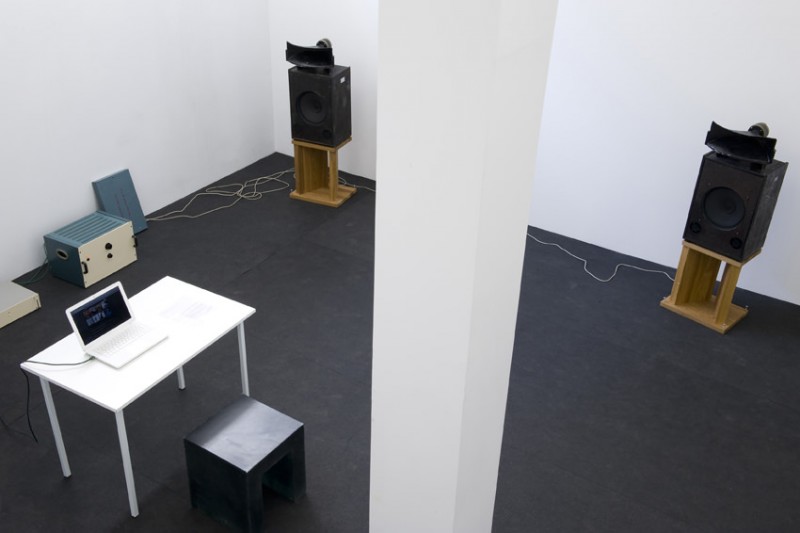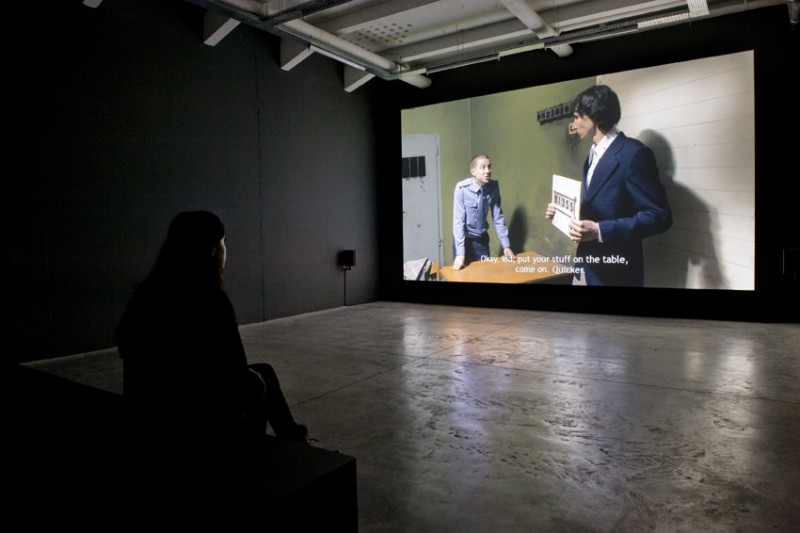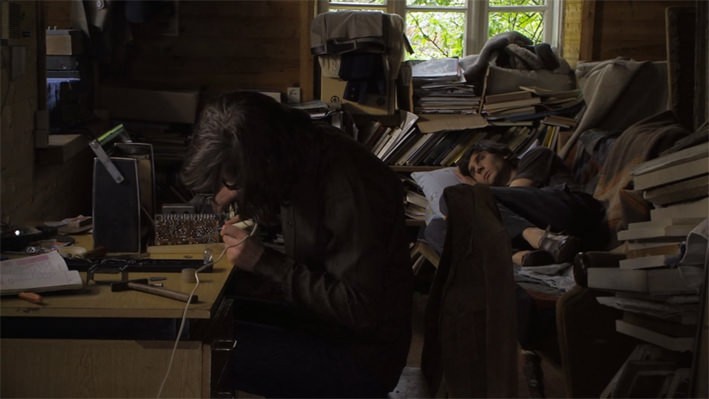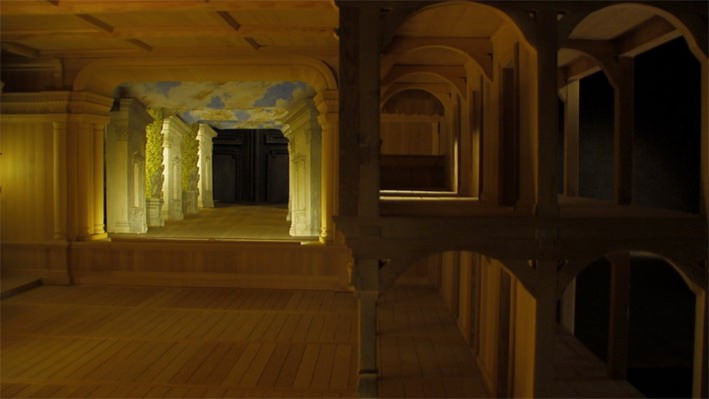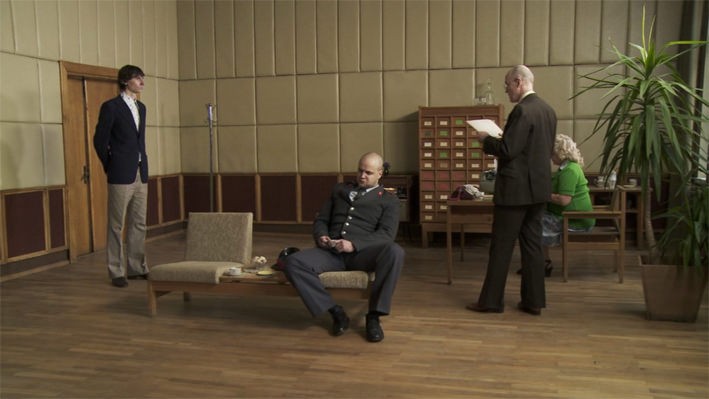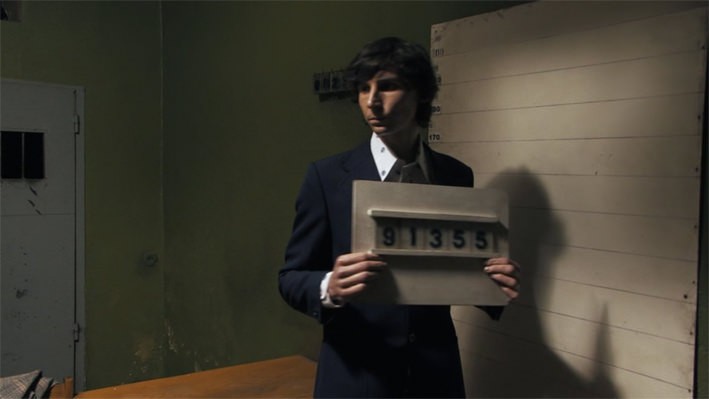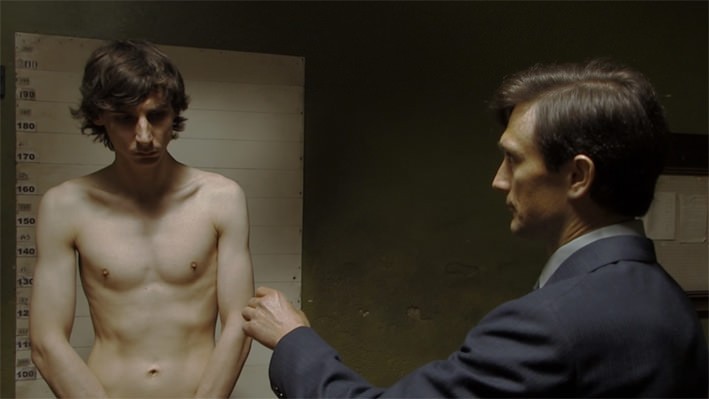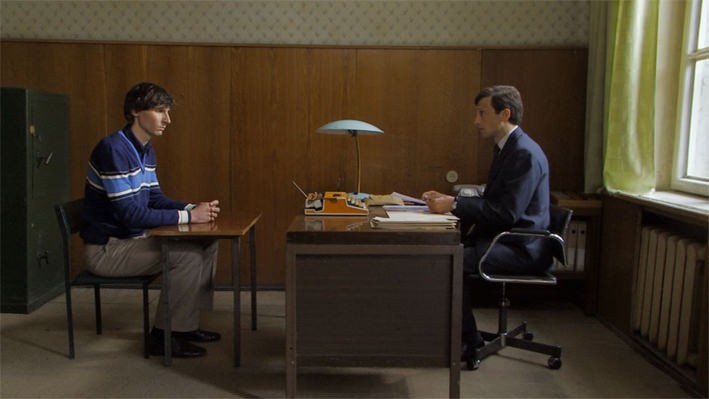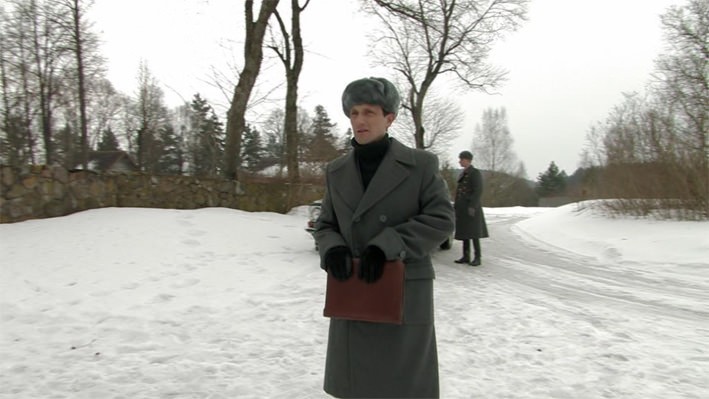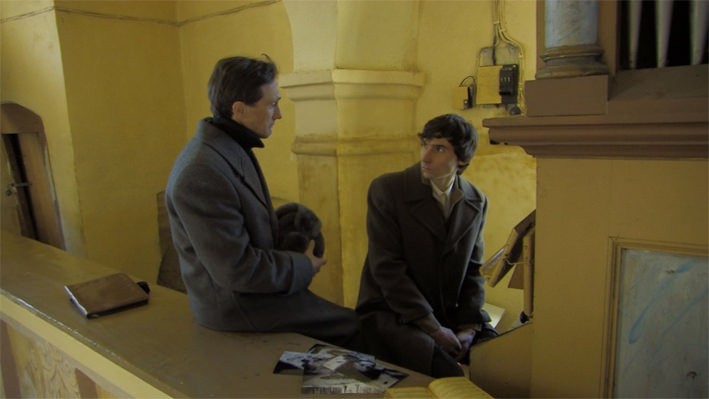Deimantas Narkevicius
A solo exhibition by Deimantas Narkevicius
gb agency
From September 10th to October 22nd, 2011
gb agency is happy announce a new exhibition by Deimantas Narkevičius who presents two works, shown for the first time in France, that testify to the developments and new experimentations of the artist.
End of Censored Cinema Again and Again, 2011 is a performance that takes the sound system produced by Lomo Kinap for the Soviet cinema as its material and point of departure. Between the 1950s-1980s the Soviet cinema was equipped with a very particular sound thanks to a highly sophisticated material. This superb sound quality accompanied cinema with a didactic and moralist content and was often neutralized by censors. Deimantas Narkevičius restores visibility to this characteristic technology in order to slide toward other fields of experimentation.
Exhibition visitors can discover the magic of this sound by selecting a song from an online library. The digital file is transformed by the 4A32 Lomo Kinap system. Like a kind of scenographer Deimantas Narkevičius remixes two periods in order to destroy temporal linearity. By way of deconstruction, of ruptures and juxtapositions, he invites the public to revisit history. He creates parallel times within a sound space, round-trips from past to present. The public’s intimate experience of the present time writes itself in a more global history: 1960s technology, a functionary of Soviet propaganda and power, confronts itself with the music chosen by visitors.
While both performance, sculpture, installation and sound space, End of Censored Cinema Again and Again is above all a sensory experience that the artist shares with the public.
Restricted Sensation, 2011 - Deimantas Narkevičius’ first short film - brings his narrative and fictional method of recounting history to cinematic scale. The film’s subject recounts the profound and systematic homophobia of the Soviet regime through the experience of an aspiring theatre director in Vilnius. As first-hand testimony of questions concerning sexual identity are still today quite rare, the artist slides toward a more cinematic format. The film is structured in three parts, articulated around three strong institutions: a theatre, a prison and a church. Certain sequences seem realist and historic, while others appear constructed, like an illusion from the past, with its own suspended temporality. The artist plays with this ambivalence in order to maintain the potential of fiction. The main story presents a man who falls victim to the regime’s investigations of presumed homosexuals, yet Deimantas Narkevičius also constructs a powerful sub-narrative of the role of art and creativity within a supposed utopia. It is not by chance that the film unfolds within a theatre and that the young man himself wishes to construct a new kind of theatre, one with a different approach and method.
Using fiction and not documentary, Deimantas Narkevičius makes a work around memory. Once again the artist returns to his History, revealing the story of people, who still today, have difficulty in recouting what they lived.
